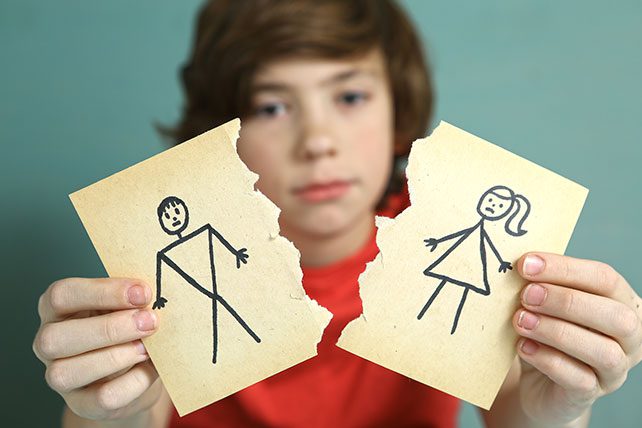Youth ministry and divorce… Unfortunately, those two topics often interact. So youth ministers need to know how to respond when teens deal with the impact of divorce. Read on for helpful insights.
Hollow. That word haunted me after reading Andy Root’s article “Young People, Divorce and Youth Ministry.” His candid description of being a child of divorce and the hollowness his childhood friend experienced gripped me with emotions and fears I’ve wanted to forget.
Hollow. That blasted word has pounded my imagination. It has brought back to the forefront the episodes of my parents’ fighting. It rings in my ear until I weep over my 15-year-old depressed self. In those days, hollowness and pain defined me.
I’ve been asking what Andy’s article means for me and my work with young people. Three counseling implications emerged.
3 Thoughts on Youth Ministry and Divorce
1. Deflection is natural.
I recently shared publicly the story of my parents’ divorce and how it sent me searching for love, security, and identity. Afterward, a youth worker asked if I’d speak with one of his teens whose parents were divorcing.
Later, a scrawny preteen boy walked up to me. We exchanged pleasantries and found a quiet place to chat. Tim described how the divorce was affecting his siblings and parents. I identified Tim’s initial comments as a natural deflection of his experience.
Though Tim had the filter of a confident preteen, he didn’t want to share his feelings about his parents’ divorce. Doing so would bring him face to face with the hollowness that comes with losing love, security, and identity.
2. Dasein in our feelings of mitsein.
Following Martin Heidegger, Andy provides a practical description of a philosophical anthropology. Similar to a theological anthropology rooted in the imago Dei, Heidegger understood that our being is bound together in our connection. Specifically, our dasein (being) is mitsein (being with others).
I invited Tim to share more feelings about his parents’ divorce. He said he hated the thought of going home. His mom cried all the time, and his sister hated being there too. He was jealous of his older siblings, because they had gotten the “good” parents, who were together all through their childhood and teen years. But Tim felt stuck with “crappy” parents, who were divorcing and wouldn’t be there for him.
I recognized that Tim was mourning the loss of his dasein. He didn’t know how to be with his mom anymore. The person Tim was up until this point was created to be with a mom who was interested in Tim’s needs above her own concerns. The existence Tim was formed into was one with a father who was present and engaged in Tim’s life. Now he was angry that he was losing that existence.
In short, Tim was mourning the loss of his identity. He expressed feelings about the loss of being with the people who gave him his identity. In Andy’s words, Tim was expressing the rupture of his ontological security.

